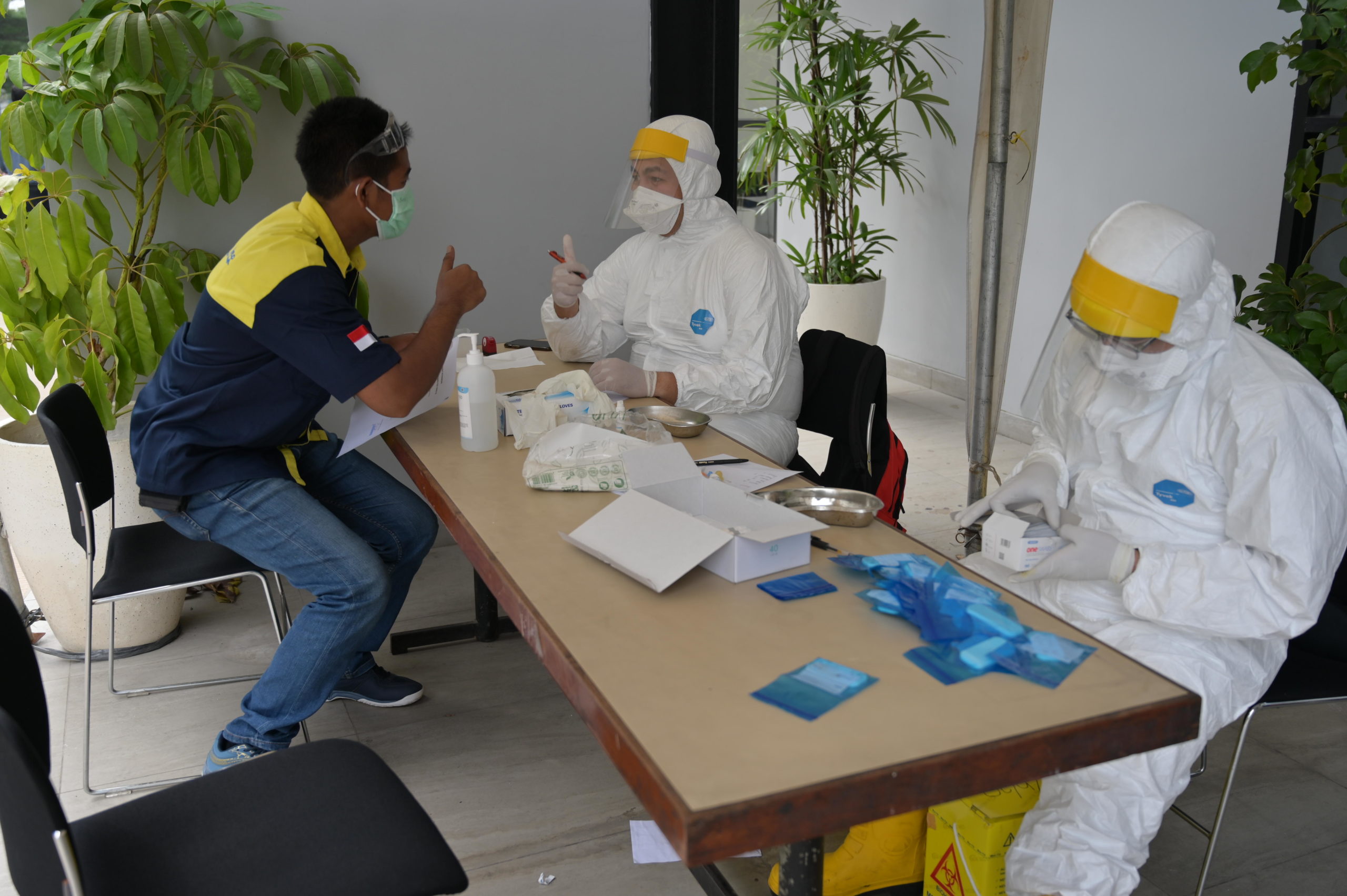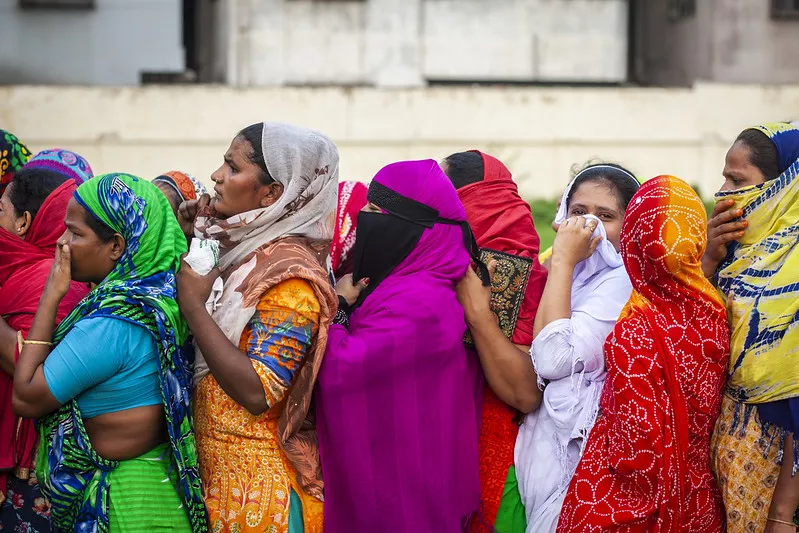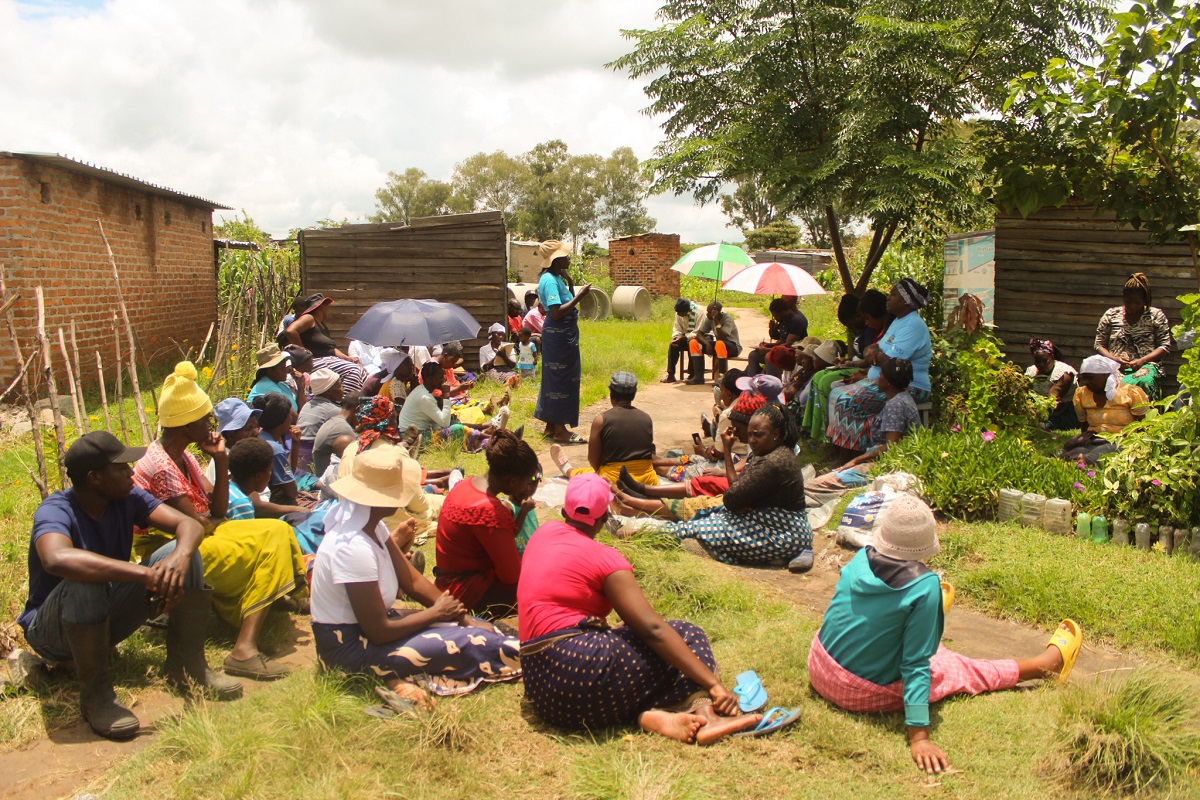Research and evidence continue to play a prominent role in how we deal with Covid-19 and the multiple challenges of the pandemic; from analysing how and if vaccination programmes are implemented equitably, to highlighting the wider socio-economic impacts of the pandemic. Globally, social science research is generating new insights, data and analysis about the impact of Covid-19 on people’s lives and livelihoods. This includes in the Indo-Pacific region, where the Covid Collective supports exciting new research, mutual learning and collaboration that is shedding light on numerous issues and questions related to the pandemic.
A dynamic global agenda
As the pandemic continues, the global context remains uncertain and dynamic. As new variants emerge, we see a new range of measures that seek to limit the possible impact of the pandemic on health, societies and economies. The immediate future for many countries still depends on progress with vaccination roll-out, painfully and unfairly slow in many parts of the world, and the sudden increases in infection and mortality rates that are still being experienced. However, a more forward-looking agenda is emerging. Health remains a core focus, whilst the economic impacts of the pandemic also loom large alongside the urgency of the threats of climate change and a range of other hugely important societal issues: building accountability and trust in institutions, gaining lost ground in access to education; tackling injustice and inequity experienced by marginalised communities, including those affected by; forced migration and displacement and navigating the benefits and risks of emerging technologies, to name but a few.
The Covid Collective offers a rapid social science research response to Covid-19, combining urgently needed information for diverse audiences with what we believe are boundary-pushing, out-of-the-box ideas for mid- and long-term thinking and practice. Supported by the Research and Evidence Division of the UK FCDO, the Collective began in August 2020 and it has two main aims; to promote solidarities, relationships and collective action to help tackle global development challenges relating to the pandemic; and to support research which leads to transformations in perspective, worldview and practice – including an appreciation of the universal nature of the Covid-19 challenge.
The Collective’s projects are oriented around 4 thematic pillars: governance, social inclusion and development, conflict, and humanitarian challenges. Work on inequities and inequalities (for example related to poverty, access to services/vaccines, challenges of marginalisation and exclusion) is integrated throughout many of its projects. It is this thematic focus and the rapid, reflexive nature of the research across the collective that has already resulted in some insightful and important research findings that have emerged across the short lifespan of the project.
Focus on the Indo-Pacific region
The Collective partnership and reach has expanded to include 28 partners and 56 projects in 34 countries. The rapid speed of the research taking place has seen opportunities for collaboration and mutual learning emerge, alongside a genuine integration of social science research and evidence with the overall research effort on Covid-19. In the Indo-Pacific region, so important as a locus of social and economic change worldwide, and as a driver of global transformations, we have 12 projects taking place. Many of the challenges mentioned above play out in this region as they do globally, and Covid Collective partners are already engaged in exciting work which they recently shared with UK stakeholders via a Covid Collective webinar.
Many of the research projects look at the implications of the pandemic for migration and displacement. For example, the Humanity Research Consultancy is exploring the impact of the Covid-19 response on the experiences of survivors of trafficking in cities in Cambodia and Vietnam, and in borderland areas and those being trafficked on fishing vessels at sea in Cambodia. Cambodia’s Analysing Development Issues Centre is exploring the nexus of Covid-19, precarious migration and child labour on the Cambodian-Thai border. IDS works in partnership with these projects, and also with three further related projects, collaborating with Vietnam’s Center for Creative Initiatives in Health and Population researching equitable access and public attitudes to vaccination for internal migrants in Vietnam, with researchers from the Vietnamese National University of Agriculture exploring ways in which the Covid-19 pandemic has affected food and nutrition security of migrant workers in Vietnam, and with the University of Health Sciences, Lao PDR, undertaking research on accessibility to Covid-19 vaccines of returnee migrant workers in Lao PDR during the Covid-19 pandemic. We really appreciate the collaboration as well as the findings that are beginning to emerge.
Other research projects are engaged in work that looks at different kinds of impact of the pandemic on societies and economies in the Indo-Pacific region. The Cambodia Development Research Institute is partnering with the UK’s Overseas Development Institute in research on poverty monitoring in the Indo-Pacific region in the context of Covid-19. Hanoi University of Public Health is partnering with the London School of Hygiene and Tropical Medicine in research on Disability and Covid-19 in Vietnam. GaneshAid is partnering with the Centre for Global Development in research that aims to understanding the impact of Covid-19 on Asian health and care worker migration to support older people care. Covid Collective research is also taking place in other Indo-Pacific countries, for example looking at the impact of Covid-19 response on the worst forms of child labour.
These research projects are still works in progress, but findings are already emerging. Many countries in the Indo-Pacific region have been very effective in vaccine roll-out and the immediate responses to the pandemic have been beneficial to many of their citizens. However, we have also seen early insights into the structural barriers in place in many countries that constrain efforts to include all people in these responses. This is particularly the case for those who are forcibly displaced, those who have migrated for work in pre-pandemic circumstances and whose livelihoods have now been severely disrupted, and those who are at times more marginalised in societies and who may have struggled to gain access to healthcare services which are already over-stretched.
An opportunity for mutual learning and collaboration
The Covid Collective places a very strong emphasis on opportunities for mutual learning and seeks to promote a genuine integration of social science research and evidence within the overall research effort on Covid-19. We have seen throughout the work of our partners how important partnership and collaboration is in catalysing these research projects, and in bringing to bear the experience, knowledge and perspectives from different contexts which when engaging effectively together are truly generating outcomes that are “more than the sum of their parts”.
We will share more about the emerging findings from the research in the region in the coming weeks. But for now, if you would like to find out more, please visit our website and use the interactive map to learn about these exciting, rapid research projects.


